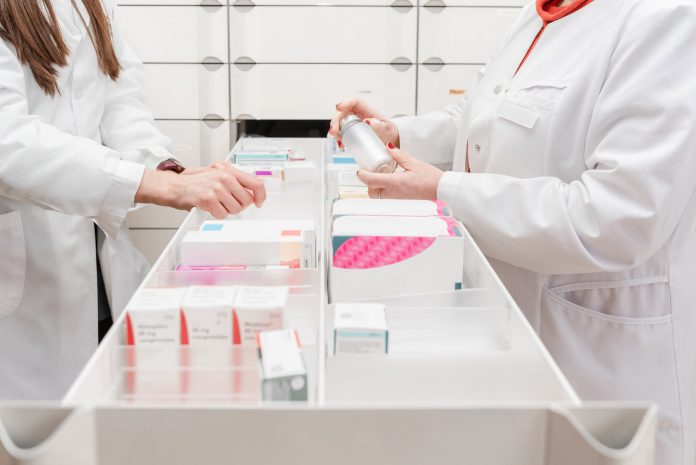The UK is losing ground in global pharmaceutical investment as major companies pause r&d projects. Rising costs, policy barriers, and shrinking incentives are driving Big Pharma away
The UK’s pharmaceutical industry is facing a critical crisis. Once a global leader in research and innovation, the country is now losing billions in investment and high-value jobs as major pharmaceutical companies pause or cancel projects. The potential loss of the UK’s global standing is a cause for concern. Shrinking R&D incentives, rising costs, and restrictive policies are forcing big pharma to look elsewhere, putting the UK’s innovation pipeline and access to life-saving medicines at risk.
The Association of the British Pharmaceutical Industry (ABPI) warns that urgent reforms are needed to restore the UK’s appeal and secure its future as a hub for drug discovery.
AstraZeneca and Merck & Co. pause investment
Britain needs to reverse its declining investment in medicines, science minister Patrick Vallance said on Tuesday, amid growing concerns about the country’s attractiveness to pharmaceutical companies. The warnings follow the announcement by two major firms that they are scaling back operations in the UK. U.S. drugmaker Merck & Co., known as MSD in Europe, confirmed last week that it is scrapping its research operations in London. Meanwhile, AstraZeneca has reportedly paused a £200 million ($273 million) investment in its Cambridge facilities, according to Reuters.
These moves highlight a challenging operating environment for the pharmaceutical sector in the UK and underscore calls from industry leaders for policy reforms to maintain the country’s competitiveness in research, development, and innovation.
Why is Big Pharma abandoning the UK?
According to the Association of the British Pharmaceutical Industry (ABPI) and research from the King’s Fund, the UK has seen a significant decline in pharmaceutical R&D investment, with spending falling by nearly £100 million in 2023 while global investment continues to grow.
Foreign direct investment into UK life sciences dropped by 58% between 2017 and 2023, and the country’s ranking for commercial clinical trial placement has steadily declined, with Spain overtaking the UK as the leading European destination.
High revenue clawbacks through the Voluntary Scheme for Branded Medicines Pricing and Access (VPAS), which can reach up to 35.6% of branded medicine revenues, have been cited as a significant disincentive for investment. The VPAS, a voluntary agreement between the Department of Health and Social Care and the pharmaceutical industry, was introduced to control the cost of branded medicines to the NHS. However, the high revenue clawbacks it imposes have deterred pharmaceutical companies from investing in the UK.
Companies also report concerns over regulatory unpredictability and complex pricing policies, which further discourage long-term commitments. Collectively, these factors are driving Big Pharma to pause or cancel UK projects, putting jobs, innovation, and life-saving treatments at risk, and underscoring the urgent need for policy reforms to restore the UK’s appeal as a hub for pharmaceutical research and development.
The UK is losing the race to invest in drug development and delivery
A new Pharmaceutical Competitiveness Framework has highlighted that the UK is lagging in investment in R&D, clinical trial delivery, and foreign investment.
Since 2018, investment in pharmaceutical research and development (R&D) in the UK has lagged behind global trends. A significant slowdown began in 2020 when UK growth dropped to 1.9% per year, compared to the worldwide average of 6.6% annual growth. In 2023, investment in pharmaceutical R&D actually decreased by nearly £100 million.
Foreign direct investment in the UK’s life sciences sector was approximately 58% lower in 2023 (£795 million) than it was in 2017 (£1,893 million). As a result, the UK’s ranking among comparator countries fell from 2nd place in 2017 to 7th place in 2023.
Additionally, the UK’s global ranking for the placement of commercial clinical trials has steadily declined since 2018 among comparable nations, although there were some minor signs of improvement in 2023. In contrast, Spain has established itself as the leading destination in Europe for commercial clinical trials since 2020.
Richard Torbett, ABPI Chief Executive, said: “The UK has a world-class science base and the potential to lead globally in developing the next generation of medicines and vaccines. However, without a more competitive environment for investment, we risk losing out to other countries that are making bold moves to attract internationally mobile investment.
“I believe the UK has the potential to unlock billions in additional investment in early-stage R&D, ensure patients and the NHS can benefit from access to cutting-edge clinical trials, and attract major capital investment in R&D and medicines manufacturing facilities – all of which directly support the government’s health and growth missions. But realising this potential requires industry and government working together to remove existing barriers and lean into areas of untapped strength. First and foremost, we need to create a commercial environment that rewards pharmaceutical innovation fairly and brings its benefits rapidly to UK patients.”











